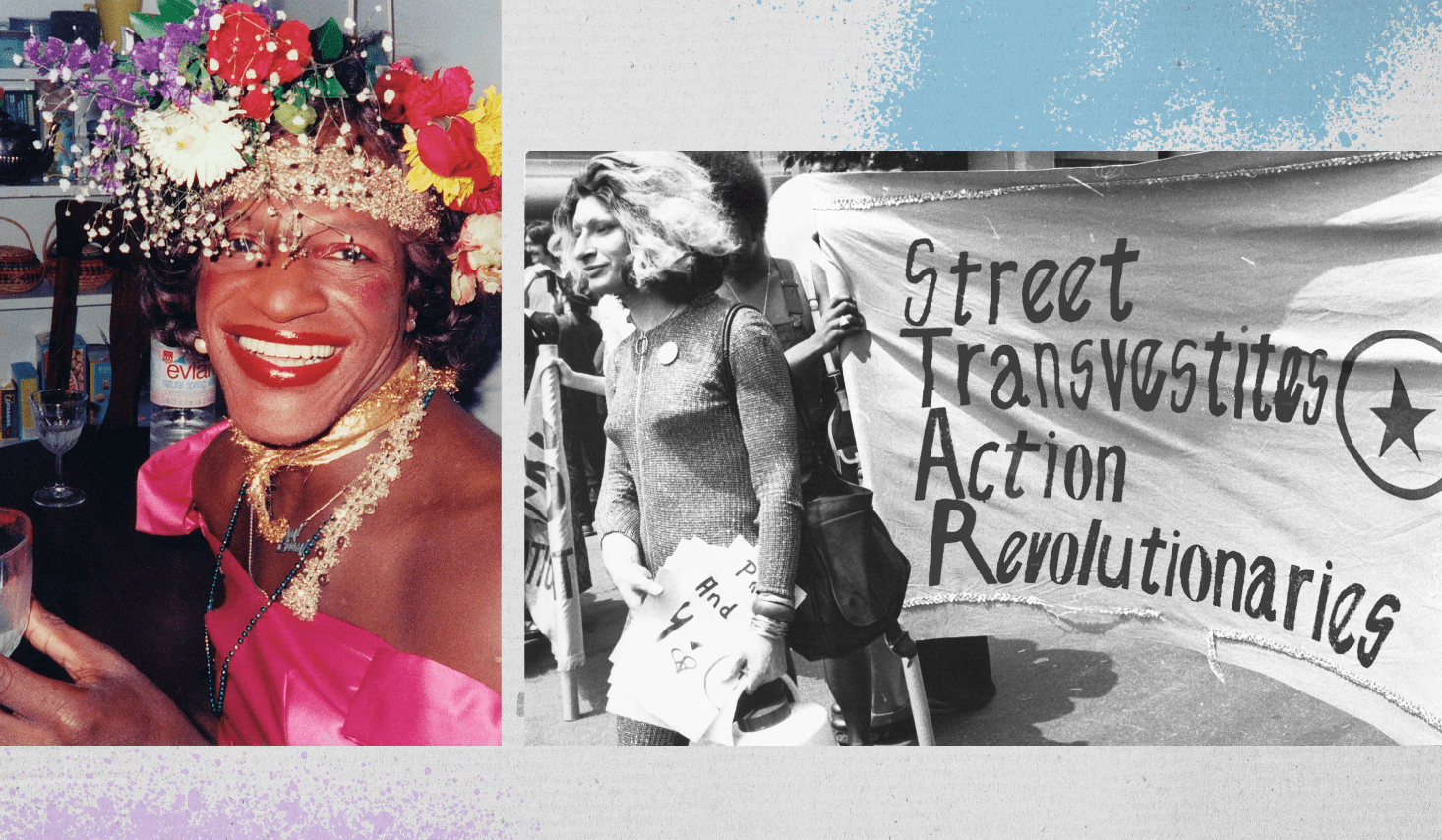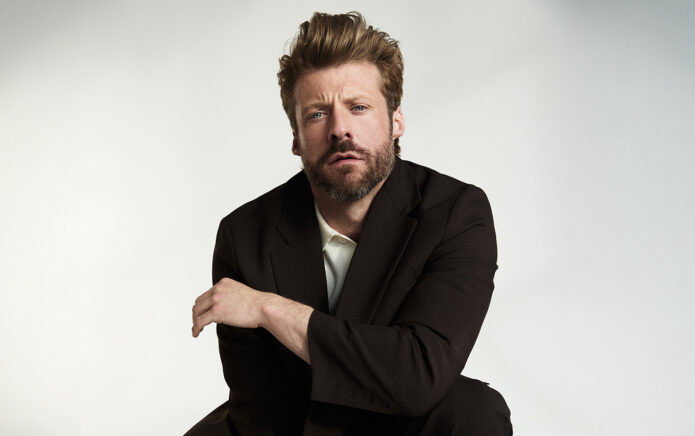
Have you heard of Mary Mudge? What about Mark Weston or Michael Dillon? These are just some of the names of trans+ figures from British history, individuals who lived in the 19th and early 20th century and who remind us that trans stories – whether we’ve been taught about them or not – have always existed.
The delivery of transgender history has long been skewed or, at times, completely erased. Today, we can trace queer histories, cultures and communities back hundreds of years – and Trans+ History Week celebrates and recognises exactly that. Taking place from 6 to 12 May 2024, the initiative is a week-long period launched by the QueerAF, an independent LGBTQIA+ platform, to consolidate the efforts of trans+ archivers, historians and content creators. The week stands as an ode to the rich history of trans, non-binary, gender-diverse and intersex people.
For Marty Davies, the founder of Trans+ History Week and Joint CEO of Outvertising, the initiative stands as an opportunity to educate and “deliver the “trans+ history lesson we never had”. Trans+ History Week now marks a regular reminder to honour the “gender diverse ancient ancestors” that came before us.
GAY TIMES talks to Davies to hear more about the launch of Trans+ History Week and her hopes of immersing others in the community’s rich queer history.
Can you share your ambitions behind the creation of the new awareness week?
I announced the establishment of Trans+ History Week for 06–12 May 2024 in QueerAF with an op-ed to make the case. In it, I talk about observing that in our modern discourse – in our media, politics and online – we hear trans+ people being dismissed. We’re labelled a trend, an ideology and an impossibility.
The dangerous and dehumanising idea that we’re a modern fashion or “social contagion” takes root when evidence of our existence throughout history has been improperly contextualised, remained undocumented or been destroyed entirely: all in an attempt to erase us.
It leads to the idea that we have no history. It tells our society that we’re not welcome in the present either. And it robs us of the idea that we have a future, too. Predictably, and proving why the week is so needed, the response from some online has been to remark on how short the week will be and to accuse us of making up history.
This happens because our history hasn’t been told. And we need to tell it.
What are the key objectives for Trans+ History Week?
History is a powerful tool in our fight for equality and justice. So Trans+ History Week’s main objective is to inspire us to learn our stories.
We’ve used the term ‘trans+’ to be inclusive of the many ways people describe and define their relationship to their own gender or absence of gender. To be inclusive of all gender diversity. This term is inclusive of transgender, non-binary, genderqueer, genderfluid, bigender, gender non-conforming and agender people – or indeed inclusive of any of the other ways people define their gender. And there are many more ways in which people do. This term is also inclusive of intersex people who have natural diversity in sex characteristics.
I want the week to be inspiring: a respite from the negativity. We have a lot to learn from our history-makers and trailblazers. As a QueerAF launchpad project, we’ll do this by commissioning contributions from Trans+ creative talent.
Why is it important to explore trans+ history right now?
The volume of sensationalised and distorted news and opinion pieces about trans people has increased by over 400% over the last 5 years. Hate crime has more than doubled in the same period and is now at record-breaking levels. YouGov reported earlier in the year that a quarter of Brits now have negative feelings toward trans people.
It’s no surprise to me as a comms strategist that an ever-intensifying campaign of monstering would lead to this. And it only seems to be getting worse. 2024 will be an election year where trans people and migrants are scapegoated by politicians to hide from their own political failings.
You’ve previously said you felt “robbed of important history about myself and my community”. How can trans+ history be protected and preserved moving forward?
Earlier this year I learned that one of the most famous Nazi book burnings was at the world’s first trans clinic. It was a huge surprise to me. It made me wonder how I didn’t know – it’s an image we all saw in history class at school. But we weren’t given the full context.
In 1988, Section 28 banned schools from promoting, discussing, or mentioning ‘homosexual lifestyles’. In 1991, the Holocaust became a compulsory subject in State-maintained schools, but Section 28 meant that LGBTQIA+ people were removed from the picture. The irony of one law preserving history while another law denies it is not lost on me.
Section 28 was repealed twenty years ago this past month, but we’re still feeling the hangover effects. LGBTQIA+ inclusive education is still viewed as taboo. Many educators feel like Section 28 is back by stealth thanks to politicians stoking culture wars.
How do you think greater public awareness of trans+ history could help educate others about trans+ people?
The important thing here is to educate our own trans+ community on our shared history – stories we’ve never heard. Recently, our humanity is being diminished and attacked. We’re being othered every single day. It can make you feel like you don’t belong. Knowing we have gender-diverse ancient ancestors reminds us that we do.
In the UK, awareness of trans people is absolute at this point. The problem is that it’s plagued by disinformation and sensationalism. I’d love interest in our history to grow beyond just us. And for it to become a way for the public to hear about our human stories, rather than scare stories. It’s a way for us to break the notion that trans people are a modern fad or problem to be ‘fixed’.
What plans do you have for the first-ever Trans+ History Week?
Ambitious ones, but they depend on the level of support and funding we receive. We’ve been very grateful for the foundational support from the outset by Jamie Wareham, the Founder of QueerAF, and QueerAF. And over the last few months, we’ve been heartened by the support of the queer sector in getting it off the ground. Stonewall, Queer Britain, LGBT Foundation, Just Like Us, Not A Phase, Gendered Intelligence, Pink News, DIVA and many others have been genuinely incredible.
The early interest and support for the project among the community has been really encouraging, too. People seem to understand immediately why it’s needed. We’re hoping to run open calls through QueerAF to commission and pay writers for content. We’d also love to develop a podcast series, educational materials for schools, exhibitions, screenings and even an intergenerational poetry night.
How do you see the event evolving over future years?
We don’t want to get ahead of ourselves. Right now, we’re focused on making this inaugural year the best it can be. We’ll go as far as our budgets will take us.
I’d like the initiative to inspire our trans+ people across the UK to develop their own content and events independently of the ones we will produce. I’d like to see all schools teach the Holocaust inclusively and teach of gender-diverse people across millennia.
How will people be able to get involved in the week?
I’d firstly encourage people to sign up to the QueerAF platform newsletter for updates. We’ll be announcing our plans over the coming months and that’s where we’ll publish calls for writers and creatives.
I’d also ask people to share our content, attend our events and even mark the week with your own event at your school, college or place of work. And add it to your calendar.



